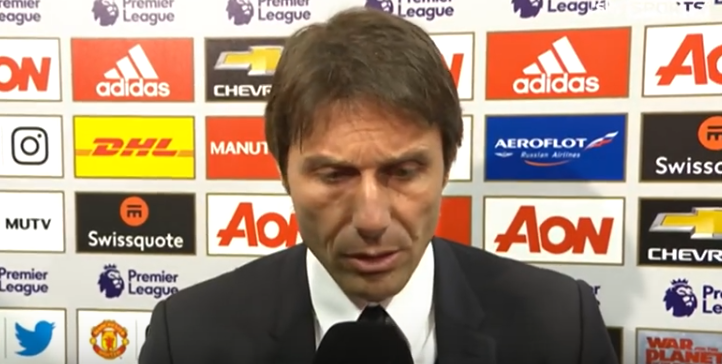Do we now have a title race?
Probably not.
As Souness explained, title-winning teams react to bad defeats.
Indeed, to win the title you need to win many more matches than you lose. Who knew?

Conte knows, however, the reason for this latest defeat.
Man U have “shown more desire than us, more motivation.”
And the fault is his own. “I wasn’t able to transfer the right desire & motivation.”
What Chelsea need from now until the end of the season is “great enthusiasm, great passion, great ambition and great ambition.”
It is stirring stuff and if you think Conte struggles with his English (G. Neville) you are wrong.
He achieves this rhetorical effect though the use of Anaphora – the repetition of a word or phrase at the beginning of successive clauses.
We even have a wonderful use of Occultatio in the interview – the calling attention to material while pretending you’re not going to talk about it.
Invited to comment on a handball Conte replies, “It is the same at Bournemouth, Crystal Palace, Stoke City. I don’t want to talk about this situation – but it happens frequently.”
Whatever else Chelsea have to worry about this season, their managers command of the English language will not be one of their concerns.
Leadership communication lesson
When to acknowledge mistakes as a leader is a constant challenge. Taking responsibility for a mistake can strengthen trust within your team and is expected from a leader. As Conte demonstrates, however, timing is everything. Chelsea are top of the league. This allows him to be publicly critical of his own decisions. A leader should acknowledge mistakes from a position of strength. If you are not yet in that position of strength, discretion is likely to be the better course.

